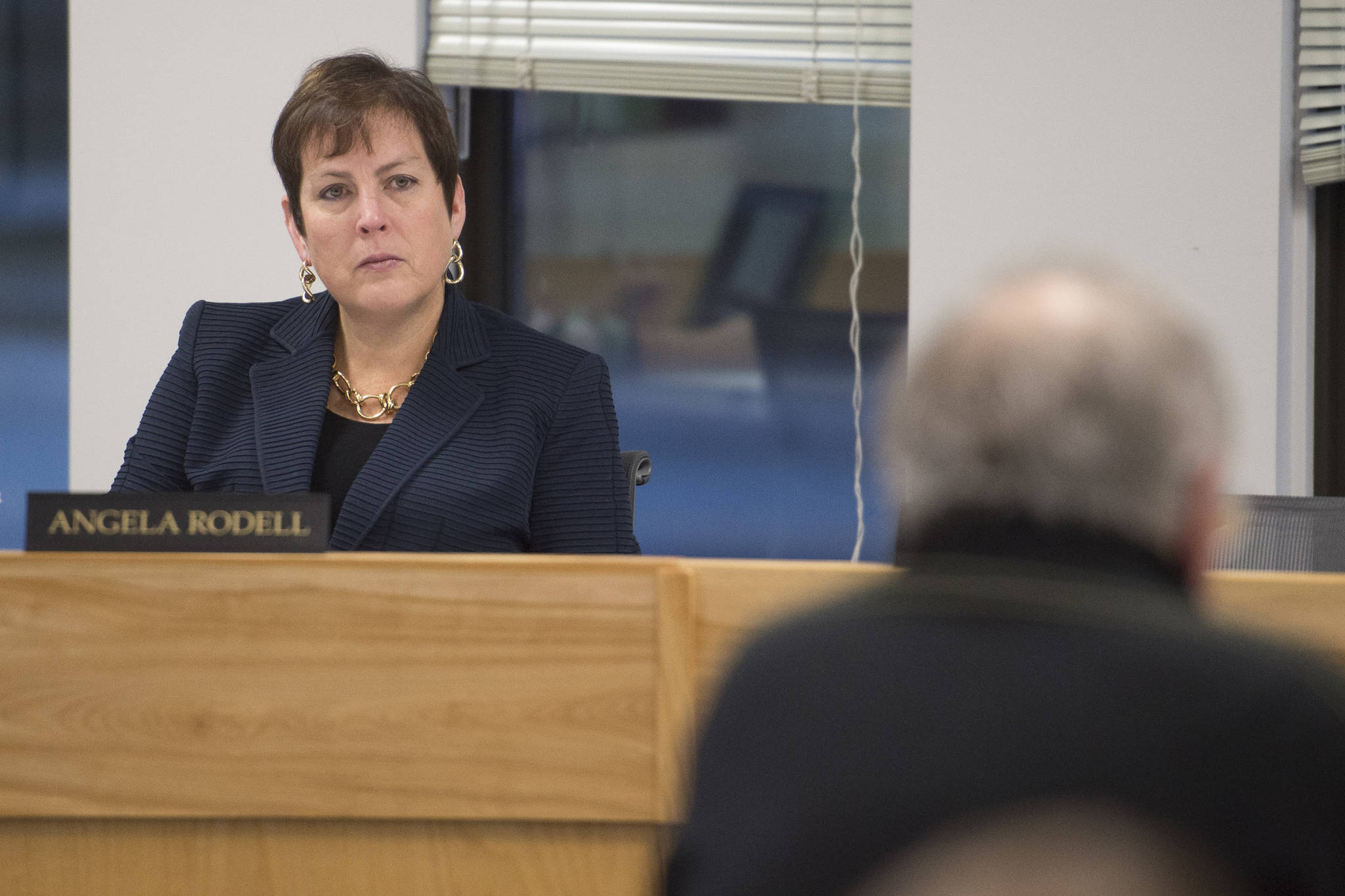A local environmental group is again urging The Alaska Permanent Fund Corporation to take action in addressing climate-related financial risk to the fund.
The group’s sentiments mirrored global investors’ who are meeting in Poland at the United Nations Climate Summit. Together those 415 investor groups manage over $32 trillion in assets-under management, according to their statement provided to the UN. The statement says without achieving climate change goals of lowering the rate of global temperature increase, the world will face a substantial economic crisis, particularly among low income areas.
Members of 350Juneau, a grassroots climate group, addressed the Permanent Fund Corp. Board of Trustees at Tuesday’s quarterly meeting to take a look at how climate change will affect future performance of the fund. They asked for a report to be made public that would describe in detail performance of assets related to fossil fuels and coastal assets that are vulnerable to risks arising from climate change. An example of these coastal assets are properties in vulnerable areas like Florida, which are susceptible to damage from extreme weather events and sea level rise caused by climate change.
“We expect that the Alaska Permanent Fund Corporation will evaluate the importance of climate change, of fossil fuel company potential liability and the inevitability of change to a non-carbon based energy economy as it evaluates its investments in the energy sector,” said Bob Schroeder, a member of 350Juneau and former applied anthropologist for Alaska Department of Fish and Game.
The group has asked the Permanent Fund Corp. Board for information on this risk before in February and May.
In May, group members received a letter back from the board, showing that they have already decreased “fossil fund exposure” in the fund from 7.51 percent in 2011 to 2.74 percent, a decrease of about $1.4 million overall.
But Doug Woodby, co-chair of 350Juneau, said in a testimony before the board that this report was likely not the full representation of fossil fuel related holdings across all assets in the fund.
“The holdings only represented public stocks and corporate bonds for companies whose primary business was extraction and production of hydrocarbons,” said Woodby.
CEO of the Permanent Fund Corp. Angela Rodell said the board will decide what action, if any, they want to take during board comments at the end of the quarterly meeting on Wednesday afternoon.
“In the past the board has taken the view that we look for really good long-term investments and we are required to only consider financial factors and to the extent a long-term business plan is affected,” said Rodell.
[Cruisers come to see ‘front lines’ of climate change]
But Bob Schroeder said in his testimony at the meeting Tuesday that the matter has become more urgent since they first asked the board to divest from fossil fuel holdings in the fund.
“Global warming has been accelerating in this past year,” he said. “This can be seen with climate change exacerbating California wildfires, empowering more frequent and more powerful hurricanes and other extreme rainfall events. Closer to home we had the worst commercial fishing season in Southeast Alaska that anyone can remember and a hot dry spell in Tongass National Forest that damaged salmon returns and survival, and threatened forest fires in a rainforest that has never burned.”
Several large groups have already divested from fossil fuels completely in their pension funds, including the entire country of Ireland. These divestments have some oil and gas companies worried. In Shell’s annual report they state: “If additional [divesting in fossil fuels] were to continue, it could have a material adverse effect on the price of our securities and our ability to access equity capital market.”
“The responsibility of the Board of Trustees of the Alaska Permanent Fund Corporation is not to bolster up the oil and gas industry. No, it’s to make money for us, for the people of Alaska,” said Elaine Schroeder, member of 350Juneau. “Our demand is that they, like most other large public funds, utilize a climate-risk assessment tool that is readily available.”
Current makeup of the Permanent Fund Corp. does not allow the board to make investment decisions based on ethics.
“We invest in companies not causes,” the board said in its May letter to 350Juneau members. “While the current trend suggests the Fund may not be invested in such companies five to ten years from now, we intend to let our process drive that decision rather than abruptly divesting from such companies today.”
Abrupt divesting is just what 350Juneau wants, though.
“This is an investment ecology where slow moving fish get eaten,” said Bob Schroeder.
• Contact reporter Mollie Barnes at 523-2228 or mbarnes@juneauempire.com.

